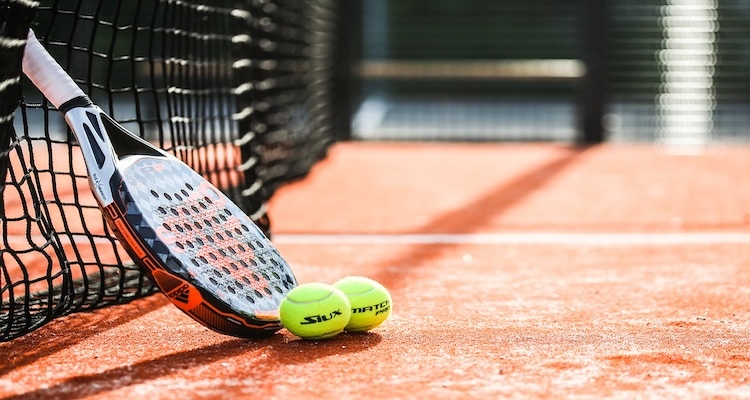
Padel tennis, a fast-paced racquet sport growing in popularity worldwide, demands not only skill and agility but also optimal nutrition to support performance and recovery. With its blend of elements from tennis and squash, padel places unique demands on the body, requiring a balanced diet to maintain energy levels, enhance endurance, and promote muscle recovery. Understanding these nutritional needs is crucial for players aiming to excel on the court.
Padel tennis matches can be intense and prolonged, often lasting several hours. Endurance and sustained energy are therefore paramount. Carbohydrates serve as the primary fuel source for high-intensity exercise, providing readily available energy. Players should focus on consuming complex carbohydrates like whole grains, fruits, and vegetables to sustain energy levels throughout matches. Additionally, adequate hydration is essential to maintain performance and prevent fatigue, with water being the primary choice for hydration.
The dynamic movements and rapid changes in direction characteristic of padel tennis place considerable strain on muscles and joints. Adequate protein intake is crucial to support muscle function, repair, and growth. Protein-rich foods such as lean meats, fish, eggs, dairy products, legumes, and tofu should be included in the diet to aid in muscle recovery and prevent injury. Consuming protein both before and after matches can help optimize recovery and muscle repair.
In addition to carbohydrates and protein, healthy fats play a vital role in providing sustained energy and supporting overall health. Incorporating sources of unsaturated fats like nuts, seeds, avocados, and olive oil into the diet can help maintain energy levels and support cardiovascular health.
Micronutrients such as vitamins and minerals are also essential for optimal performance and recovery. Antioxidant-rich foods like berries, leafy greens, and nuts can help reduce inflammation and support immune function, aiding in recovery from the physical demands of padel tennis.
Nutrient timing is key for maximizing performance and recovery in padel tennis. Consuming a balanced meal containing carbohydrates, protein, and healthy fats 2-3 hours before a match provides the necessary fuel for sustained energy. During matches, quick-digesting carbohydrates such as sports drinks or energy gels can help maintain blood sugar levels and delay fatigue. Post-match meals or snacks should focus on replenishing glycogen stores with carbohydrates and supporting muscle repair with protein.
Because of these demands working with a sports nutritionist can be very helpful for padel tennis players and we now turn to explore why in more detail.
Working with a sports nutritionist can provide padel tennis players with tailored guidance and personalized strategies to optimize their nutrition, ultimately maximizing their potential on the court.
Every athlete's nutritional needs are unique, influenced by factors such as age, weight, metabolism, training intensity, and individual goals. A sports nutritionist possesses the expertise to assess these factors and develop personalized nutrition plans tailored to the specific requirements of padel tennis players. Whether it's optimizing macronutrient ratios, timing meals and snacks strategically, or addressing dietary deficiencies, a nutritionist can provide invaluable guidance to ensure players fuel their bodies optimally for training, competition, and recovery.
Padel tennis matches can be physically demanding, requiring sustained energy, focus, and endurance to maintain peak performance throughout prolonged rallies and matches. A sports nutritionist can help players optimize their carbohydrate intake to ensure adequate glycogen stores, the primary fuel source for high-intensity exercise. By strategically timing carbohydrate consumption before, during, and after matches, players can sustain energy levels, delay fatigue, and maintain mental clarity, ultimately enhancing their on-court performance and endurance.
The repetitive nature of padel tennis movements places significant stress on muscles and joints, increasing the risk of fatigue, injury, and delayed recovery. Proper nutrition plays a crucial role in supporting muscle repair, reducing inflammation, and accelerating recovery post-match. A sports nutritionist can advise players on the optimal timing and composition of post-exercise meals and snacks to replenish glycogen stores, promote muscle repair, and minimize soreness, reducing the risk of overuse injuries and maximizing training adaptations.
Beyond performance enhancement, working with a sports nutritionist can promote long-term health and well-being for padel tennis players. By emphasizing nutrient-dense foods, hydration strategies, and balanced eating habits, a nutritionist can help players maintain optimal body composition, support immune function, and reduce the risk of chronic diseases associated with poor dietary choices. Furthermore, developing a positive relationship with food and establishing healthy eating habits can contribute to overall well-being, both on and off the court.
In conclusion, the nutritional demands of padel tennis are diverse and require a balanced approach to fuel performance, support muscle recovery, and maintain overall health. By prioritizing nutrient-dense foods, staying hydrated, and timing meals strategically, players can optimize their energy levels, endurance, and resilience on the court, ultimately enhancing their performance and enjoyment of the game. In addition, the benefits of working with a sports nutritionist for padel tennis players are multifaceted and far-reaching. From personalized nutritional guidance to enhanced performance, accelerated recovery, and long-term health promotion, the expertise of a nutritionist can make a significant difference in an athlete's journey. By prioritizing proper nutrition alongside training and skill development, padel tennis players can unlock their full potential, maximize their on-court performance, and thrive both athletically and personally.
You should always consult a qualified healthcare professional about any nutritional queries or making changes to your diet, and this blog does not offer medical or health advice. If you want to find a specialist to consult do search our easy to use directory to find a sports nutritionist near you.
Image by Jonas from Pixabay
